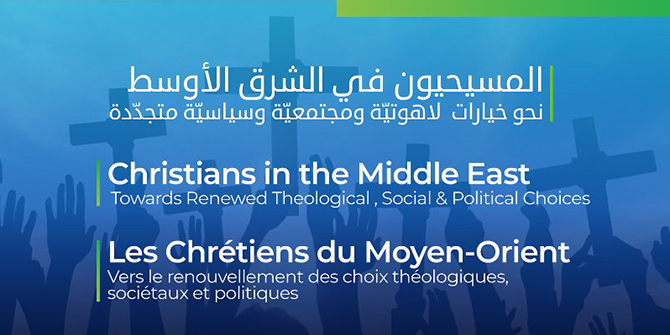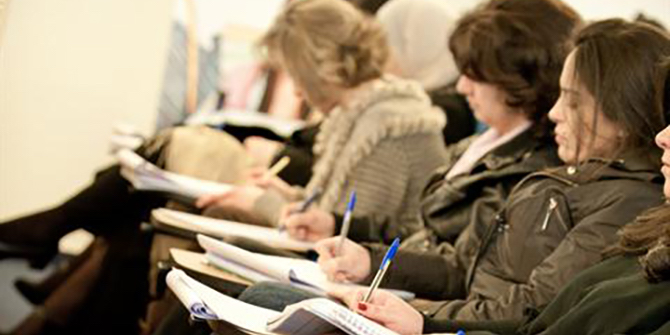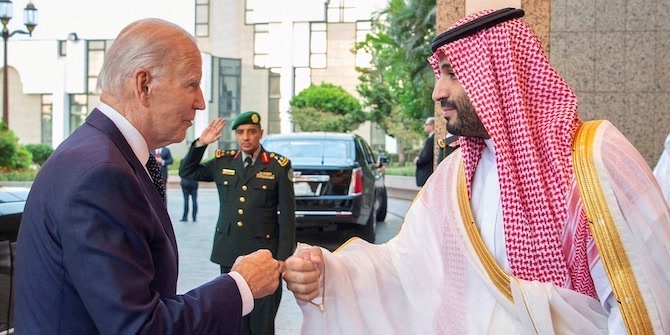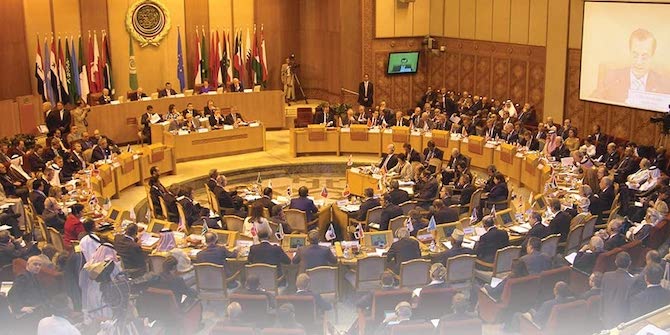by Rim Turkmani
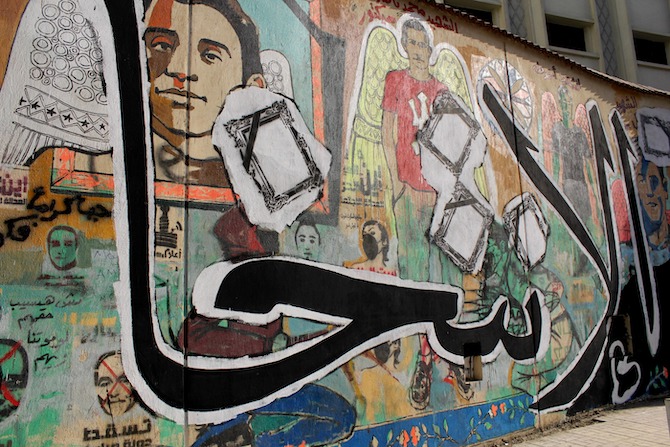
‘Supporting civil society’ and ‘promoting civic values’ are key elements in many Western interventions in the Arab world. As governments in the region continue to disappoint, attention has shifted to civil society and its organisations. However, delivery of these interventions is often met with local resistance, leading to frictions and adverse outcomes. This has reinforced the views of some policy makers and scholars who consider civil society a concept found only in the West, thereby rendering it irrelevant in other parts of the world, especially Muslim and Arab societies. Scholars like Gellner even see Islam as taking the place civil society in these societies, arguing that Muslim cultures are incapable of producing a social order that is conducive to civil society and secularisation.
One reason for this confusion is the gap between the international normative framing of civil society versus the local vernacular meaning and perception.
For international organisations, a predominant Western normative lens tends to be used to define and frame civil society and its associated values and processes, including gender equality, secularisation and democratisation.
In the Arab world, civil society and its associated values and processes unfolded differently throughout various historical contexts and social orders. They tend to have different connotations to those typically associated with normative Western understandings. Core to this is the term ‘civic’ (madani in Arabic), which comes with its own history, perception and uses in the Arab world, impossible to capture by using the lens of its Western meaning and perception. The Arabic term and its derivatives have been used to refer to civil society, civil statutes, the urban social order and to distinguish what is non-military. It was also used to frame state-citizen relationship within a secular political order; the civic state (dawla madania).
This dichotomy between the western ‘civic’ and the local ‘madani’ has severely limited the scholarly understanding of key social and political processes and is hindering efforts to foster much needed social change.
Take women’s rights and gender equality as examples. Many interventions to support these rights in Arab countries present the concept as a Western value imposed on backward societies. The approach and the language that are used feel foreign to those outside the circles of globally connected activists. Some local traditional forces and absolutist political parties pick up on this and reproduce a home-grown version of the claim of the incompatibility of Arab and Muslim societies with concepts like civil society and gender equality. As a result, local civic actors pushing for equal rights find themselves having to battle against local and international misconceptions and mis-framing of their actions that undermine their agency and ownership. But increasingly, civic actors are successfully resorting to a very local and accessible means to push their narrative for change and gain a wider audience and allies among society. The Egyptian TV drama, Under Guardianship, is a case in point. Written by an activist who suffered from the harsh guardianship law in Egypt, the drama about the struggle of a brave and relatable Egyptian widow with the system, written in very accessible language, led to a historic reform of the guardianship law in Egypt.
Our new project, ‘Legitimacy and Civicness in the Arab World’, seeks to explore this gulf between the western normative definition of ‘civic’ and the Arabic madani vernacular version of civicness. Supported with a generous grant from Carnegie Corporation of New York, and based at the LSE Middle East Centre, the project will run until 1 October 2026. The project builds on the findings and partnerships established during its previous two cycles, which began in 2019.
We aim to address the issue by working with a network of institutional partners, scholars and early career researchers from the region, exploring with them the old and contemporary manifestations of civil society and its effects and activities in the Arab world.
To understand the modern historical context of the development of civic activities in Arab societies we plan to build on our partnership with The Syrian Modern History platform, which during the previous phase of our project helped us uncovering a wealth of historic evidence of little known civic activities in the Levant since the end of the 19th century (including, for example, a Syrian human rights organisation in 1925). Many women’s organisations were active even during the Ottoman era, not only in the charitable sector, but also banging on the doors of politicians asking for greater rights and equality and for political participation. Strikes, demonstrations and petitions were frequent, even within Islamic circles. There were also public debates about civic issues in the mosques that were followed by demonstrations and petitions.
For a more in-depth understanding of the historic development of civic action within Islamic circles we plan to explore the civic legacy of the Algerian Muslim thinker Tahir al-Jazairi (1852–1920). Al-Jazairi was a vocal advocate of critical thinking and the imperative of acquiring modern knowledge as the only path for societal development, and called for freedom of the press and to resist tyranny and injustice. He left a legacy of many civic institutions that remain functional and influential today. The entire education system in Syria, including the ministry of education, came to develop on the back of the civic education foundation which he established with other Muslim scholars.
To understand the contemporary context we have established partnerships with scholars from Egypt, Tunisia, Sudan, Lebanon and Syria to explore what madani means for Arab youth, how they are persuing civic activism and what are they doing in the face of the region’s narrowing public civic space.
To unpack the concept of the ‘civic state’ we plan to continue our partnership with the Arab Association of Constitutional Law. Many Arab countries and political parties use the vague concept of the civic state as an alternative to a secular state. Yet, the contemporary constitutional interpretations of ‘civic state’ in various Arab constitutions are confusing, contradictory and at times used to conceal very un-civic arrangements, violating the civic rights of citizens. We plan to unpack this civic state concept, looking at how it was translated constitutionally in different ways in different Arab countries and the issues that have arisen as a result, working with the AACL and their network of Arab scholars.



